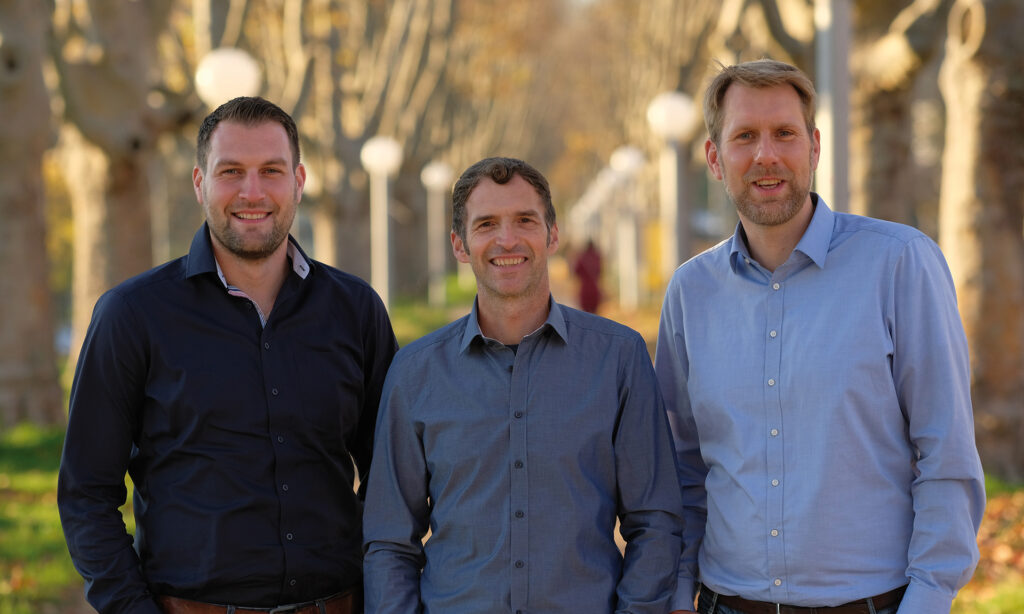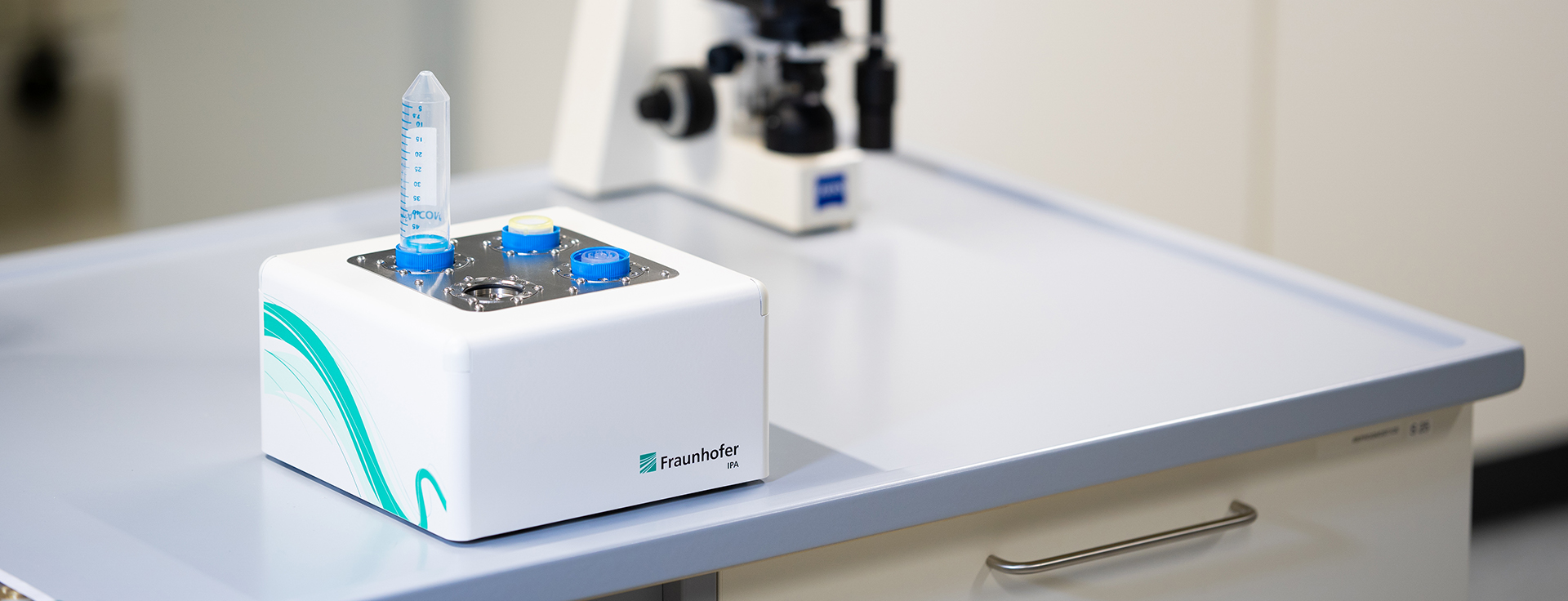The TissueGrinder generates single cells from tissue samples. (Source: Fraunhofer IPA)
The TissueGrinder
An automated miniature mill for sensitive cell tissue enables the extraction of living cells from a tissue sample. The technology was developed at Fraunhofer IPA. This procedure – which has now been outlicensed to the start-up Fast Forward Discoveries GmbH – creates an important prerequisite for personalized medicine.
Every tumor is different. Consequently, the optimal therapy should be customized to suit the individual patient. However, to determine the most effective chemotherapy for individual cases, it is necessary to have living cells. These cells must be extracted from a tissue sample without causing damage and with minimal alteration. This process has traditionally been challenging, typically involving manual cutting of cells from the tissue or their extraction using enzymes. The use of enzymes is time-consuming, leaves traces on the cell surface and can therefore influence the results of further investigations. “The extraction of single cells from tissue samples is still one of the bottlenecks in personalized tumor therapy and diagnostics,” says Jens Langejürgen, head of the Department of Clinical Health Technologies at Fraunhofer IPA in Mannheim and one of the co-founders of the start-up Fast Forward Discoveries GmbH.
TissueGrinder technology
Together with his colleagues, Langejürgen has developed a device at Fraunhofer IPA that automates the processing of tissue samples and extracts cells efficiently and without the use of enzymes. The TissueGrinder operates similar to a spice grinder. Its modified grinder geometry, combining cutting and shearing forces alternately, allows for the gentle separation of tissues without damaging or altering cells. This mechanical dissociation technique facilitates standardized sample preparation, followed by filtration in a closed sterile system using standard laboratory equipment. To provide high-quality single cell suspensions from fresh and frozen tissue samples or formalin-fixed paraffin-embedded (FFPE) tissue for a variety of applications, TissueGrinder technology combines intelligent control algorithms with mechanical dissociation.
Market launch
In cooperation with Fraunhofer Venture, Fraunhofer IPA supported the systematic utilization of this technology as part of the Fraunhofer funding program for spin-offs AHEAD. In the first funding phase, Langejürgen and his colleague Stefan Scheuermann first analyzed the market, built up their team and conducted tests on a prototype for the upcoming TissueGrinder. In the second phase, the focus was on building a company and designing a marketable product. “The challenge was to think in scalable dimensions: For the production of a device that can be marketed, larger quantities are required, the parts must be manufactured using common processes – for example, with injection molding – and the finished product must be easy to set up and also easy to operate. And all at an attractive price,” reports Scheuermann. Fast Forward Discoveries GmbH was officially founded in May 2020.

Single cells in a matter of minutes
The market-ready TissueGrinder is no larger than a shoebox and can process four tissue samples at once. A single run takes less than five minutes. Following the grinding process, the TissueGrinder automatically filters out tissue residues and blood, allowing the isolated cells to move into a dedicated container. The device is operated through intuitive software, , enablinglaboratory staff to select from the presets for different types of tissue – for example lymph nodes, various tumors, liver or cartilage- Alternatively, they can make custom adjustments. At the touch of a button, the device then generates viable single cells from tissue samples.
Your contact persons
Jens Langejürgen
Head of Health Technologies and Processes
Phone +49 621 1720718
Stefan Scheuermann
Head of Lab Automation
Phone +49 621 17207147
